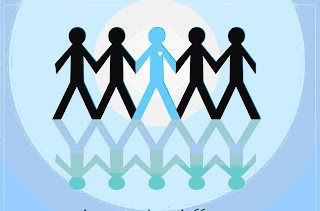Here is a quick snapshot of university news from around the US, UK and Europe:
 THE PROFS THEY ARE A-CHANGIN'
THE PROFS THEY ARE A-CHANGIN' Will the retirement of aging baby boomers usher in an era of moderate politics on campus?
ALREADY GONE Sick of mediocre students and feeling stuck on the job, a professor turns to music to self-medicate.
WE'RE NOT YOUR NEW COLLEAGUES Why adjunct faculty members don't feel they are part of their academic departments.
UNDISCIPLINEDThe trend of teaching masters of Western thought, like Freud, Hegel, and Marx, outside their home disciplines represents a flight from history, writes Russell Jacoby.
STUDENTS UNDER WATCH Online-education institutions are trying new technologies to ensure that the people enrolled in their courses are the ones doing the work.
BODIES OF KNOWLEDGE In online education, students and professors can lose important connections to each other, writes Suzanne M. Kelly.
WHAT THEY'RE READING ON COLLEGE CAMPUSES:A list of the best-selling books.
SHIFTING SANDS IN THE MIDDLE EAST Two campuses in the United Arab Emirates, one successful and one not, offer examples and warnings to American institutions on setting up branches abroad.
 I can help you change your life
I can help you change your life No, not the claim of many a self-help guru, but increasingly the mantra of modern academics. Matthew Reisz finds out why they are dipping their toes in the genre, despite its lack of scholarly kudos
After the gold rush Ireland's economic boom brought equally impressive growth in higher education enrolment. But in a chillier fiscal climate, what awaits the Celtic Tiger's universities? Hannah Fearn reports
Wondrousgames of logic Mathematician Robin Wilson's enthusiasm for Lewis Carroll stems from a shared delight in the brain-teasing and magical world of numbers. Matthew Reisz reports
 GLOBAL: Future of higher education research
GLOBAL: Future of higher education research /Diane Spencer
Higher education around the world has expanded massively in recent decades so that its character and performance have significant implications for all members of society, not only economically but for social cohesion, equity, mobility and integration, says a new report by the
European Science Foundation . The report says more needs to be known about how universities and other higher education institutions are changing in the 21st century. It says that expansion of the sector has implications locally, nationally and globally, as well as how it shapes the lives of individual citizens.
EUROPE: Higher education's global role / Alan Osborn
As a demonstration of how the top higher education people from across the world can meet, debate, agree and disagree without ever losing sight of their common goals as academic leaders, you would find it hard to better the four-yearly conference of the UNESCO-based
International Association of Universities .
EUROPE: First Mediterranean university launched / Keith Nuthall
A new Euro-Mediterranean University based in Slovenia has been launched with higher education courses that will focus on issues of importance to European, African and Levantine countries bordering the sea. Creation of the new institution was part of a joint declaration issued by heads of state and government from 43 countries at a Paris summit establishing a Mediterranean Union organisation.
EUROPE: Raising education standards / Alan Osborn
The 27 EU member states will have to speed up their educational progress if they are to meet a range of self-imposed targets deemed necessary if the Lisbon strategy for growth and jobs is to be successful by 2010. A report by the European Commission* acknowledges that progress has been made in five key areas (though not in low achievement in reading) and that long-term reform processes have been launched. "Although progress towards... targets is slow, it is mostly going in the right direction," said Ján Figel, Commissioner for Education. "But much work still needs to be done," he warned
EUROPE: Forum calls for easier technology transfer/ Rebecca Warden
Europe must get serious about technology transfer. This was one of the conclusions of From the lab to the market, a special programme looking for ways to bridge the gap between industry and academia at the EuroScience Open Forum in Barcelona from 18 to 22 July (
www.esof2008.org). Researchers, heads of university technology transfer offices and R&D managers from industry discussed what changes universities needed to make to ease the pathway from the laboratory to the marketplace.
FRANCE: More super-campuses announced / Jane Marshall
Valérie Pécresse, Minister for Higher Education and Research, has announced the four remaining locations for Operation Campus - a plan aimed at making French universities internationally competitive through substantially increased funding for a selected few. While Paris was conspicuously absent among the first six projects chosen at the end of May, three of the four new campuses will be situated in the capital or the surrounding Ile-de-France region. But a decision has been postponed on which of two inner Paris proposals will go ahead.
FRANCE: Big budget increases - and big job cuts / Jane Marshall
Academics and researchers reacted with alarm to an announcement by French Higher Education and Research Minister Valérie Pécresse that their institutions faced significant losses of tenured posts next year. They accused the government of endangering French research by replacing permanent jobs with short-term contracts, and of striking "heavy blows" against scientific employment.
AUSTRALIA: International quality assurance / David Woodhouse
As universities around the world internationalise their curricula and their research links, or offer courses abroad or enrol foreign students, these activities should be subject to internal quality assurance. By the same token, external quality assurance agencies must be able to assess the nature and effect of these internal processes. This is the "QA of internationalisation".







































